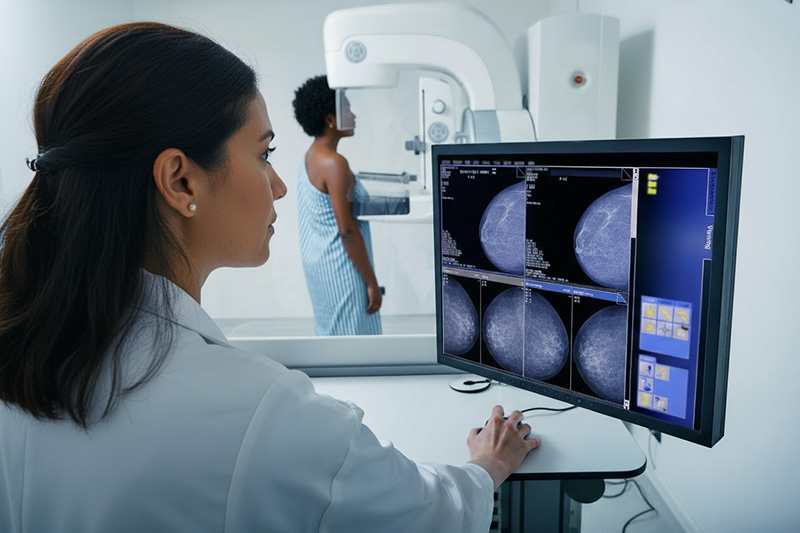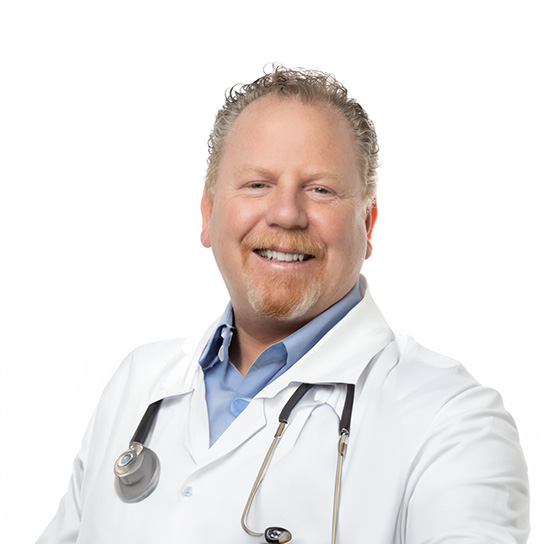
Early Detection, Lifelong Protection: A Breast Cancer Awareness Guide
October isn’t just another month; it serves as a powerful reminder. Breast cancer is one of the most common cancers in women, but the good news is that many lives are saved when it’s caught early. During Breast Cancer Awareness Month, we’re shining a light on prevention, early detection, and care you can trust.
Dr. Scott Dinesen encourages every woman, no matter her age or risk level, to take proactive steps. Early detection leads to more options and better outcomes. At Essen Health Care, we’re committed to making screenings, exams, and support accessible to all women in the Bronx.
Understanding your risk, knowing what to look for, and scheduling regular screenings are key steps in protecting your health. Let’s walk through what every woman should know and how you can take charge of your health.
Let’s Talk About Breast Cancer
Breast cancer affects women across the United States, and learning about it can help save lives. Here are some important facts:
- 1 in 8 women in the U.S. will be diagnosed with breast cancer in her lifetime.
- It’s the most common cancer in women, aside from skin cancer.
- About 85% of women diagnosed have no family history of the disease.
- When found early and localized, the 5-year survival rate is around 99%.
These facts show that breast cancer can affect anyone, and early detection is key. That’s why it’s so important to understand your personal risk. Our women’s health team is here not just during October, but year-round to help you understand your individual risk factors and create a personalized care plan.
Know Your Risk
Building on what we’ve learned, it’s clear that breast cancer doesn’t always run in families. So how do you know if you’re at risk?
Dr. Dinesen recommends learning about personal risk factors, which include elements such as age and lifestyle choices. When it comes to understanding your risk level, consider:
- Being age 40 or older
- Having a family or genetic history of breast or ovarian cancer
- Experiencing hormonal changes from menopause or hormone therapy
- Lifestyle factors like obesity, smoking, and alcohol use.
Knowing your risks helps you and your doctor ensure you are building a care plan that fits your age, health history, lifestyle, and personal concerns. When you understand what might increase your chances of getting breast cancer, you can work with your care team to stay ahead of any warning signs. This kind of personalized approach means you’re not just reacting to problems, but rather actively protecting your health in a way that works best for you.

Screening and Early Detection: A Key Strategy
Now that you understand your risk, the next step is getting screened because early detection saves lives.
A mammogram is a simple, low-dose X-ray that can find cancer before symptoms appear. It’s quick, safe, and effective.
When it comes to getting a mammogram, Dr. Dinesen advises:
Get a mammogram every year, or as your doctor advises.
Talk to your provider about earlier screening.
Include them in your regular health check-ups.
At Essen Health Care, our radiology and women’s health teams work together to make sure every screening is safe, comfortable, and focused on you. We’re here to detect changes early and support your care every step of the way.
Genetic Testing: A Deeper Look Into Your Risk
While most breast cancer cases occur in women without a family history, some are linked to inherited genetic mutations that can significantly increase your risk. That’s why genetic testing is becoming an important part of breast cancer prevention in addition to receiving regular mammograms.
Genetic testing goes beyond traditional breast exams and mammograms by integrating cutting-edge technology to identify women who may be at higher risk for breast cancer. A simple blood or saliva test can help women and their doctor better understand their risk factors and guide decisions about prevention.
Dr. Dinesen encourages women to talk to their provider about genetic testing if they:
- Have multiple family members with breast or ovarian cancer
- Have a relative diagnosed before age 50
- Have a known BRCA mutation in the family
At Essen Health Care, we are committed to offering preventive screening that goes beyond traditional breast exams and mammograms. Through advanced genetic screening and counseling, we help women understand their inherited risk, guide prevention strategies, and tailor care to each individual’s needs. This proactive, precision-based approach reflects our commitment to providing advanced and compassionate women’s health care right here in the Bronx.
What You Can Do Right Now
You’ve learned the facts, understood your risk, and seen how screening can save lives. So what can you do today?
Dr. Dinesen suggests these simple, proactive steps:
Even if you’re due or overdue.
Getting familiar with how your breasts typically look and feel is vital and will help with early detection.
A balanced diet and regular exercise routine will support overall health.
This is critical in helping to reduce your risk.
These everyday actions may seem small, but they add up. Especially when it comes to breast cancer. Simple steps like scheduling a mammogram, doing monthly self-checks, and making healthy lifestyle choices can lead to earlier detection, but possibly prevent breast cancer altogether.

Essen Health Care Is Here to Support You
At Essen, we offer comprehensive women’s health and breast imaging services, right here in the Bronx. Our goal is to make screenings, exams, and follow-up care accessible, respectful, and compassionate.
During Breast Cancer Awareness Month, Dr. Dinesen and the Women’s Health team encourage you to prioritize your care. Every woman deserves early detection, clear information, and compassionate support.
Let this October be the month you take action!
Schedule an appointment today to understand your risk factors or get screened.About Dr. Scott Dinesen DO, MBA, FACOG, L Ac

With over 34 years of dedication to women’s health, Dr. Scott Dinesen has delivered more than 16,000 babies, performed over 10,000 surgeries, and helped countless families realize their dreams. As the Medical Director of Women’s Services—encompassing Obstetrics, Gynecology, Infertility, and Breast Surgery—he brings experience, compassion, and unwavering commitment to every patient he serves. Dr. Dinesen believes that every woman’s journey deserves expert care, heartfelt support, and the hope of a healthier tomorrow.